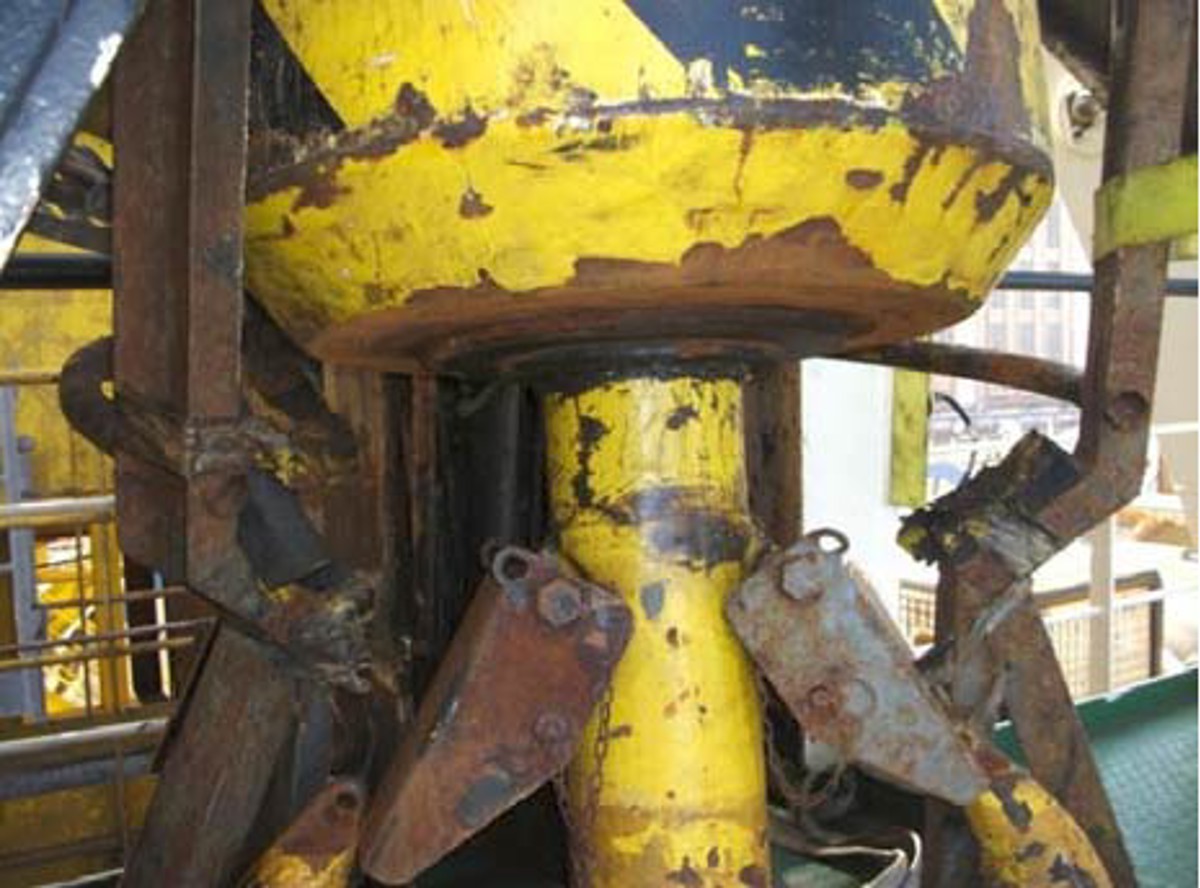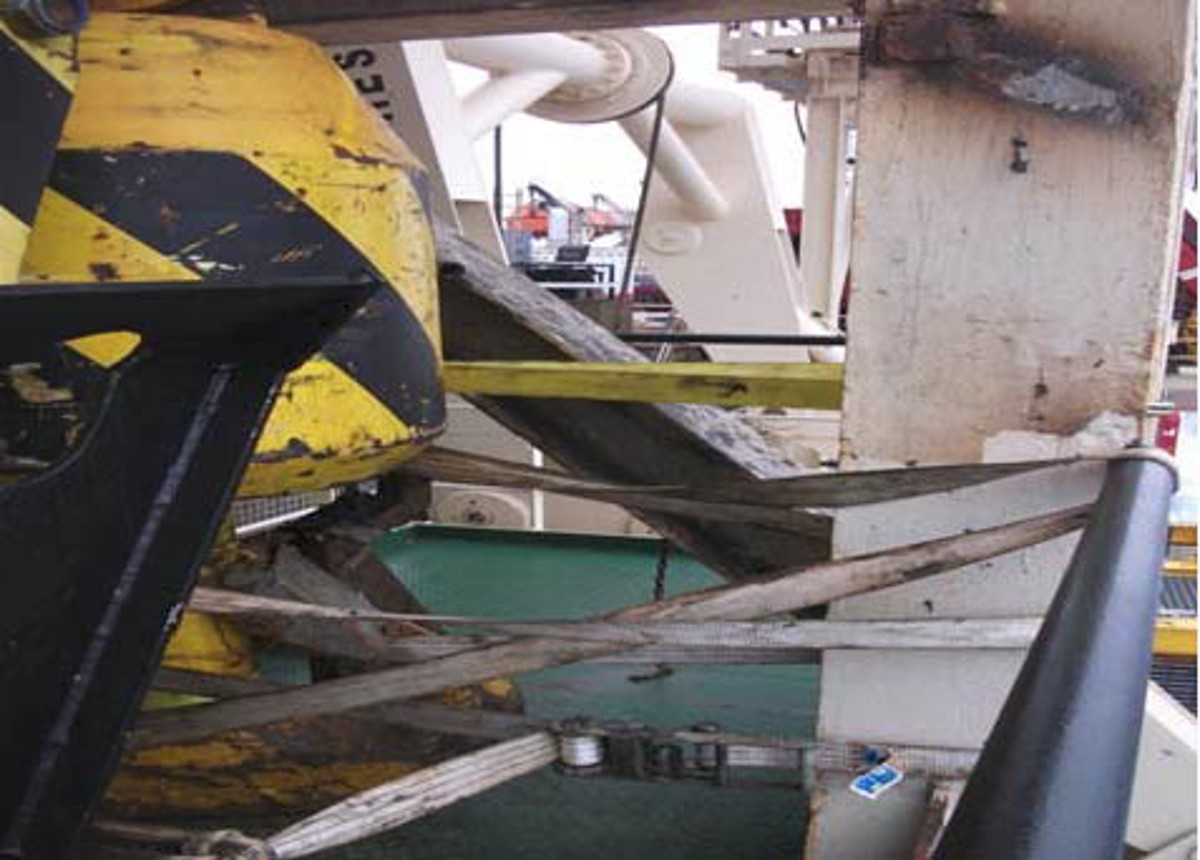Lost time injury (LTI): Crush injury – arm trapped by movement of crane block
- Safety Flash
- Published on 26 October 2012
- Generated on 14 February 2026
- IMCA SF 11/12
- 2 minute read
Jump to:
A Member has reported an incident in which a crew member broke his arm.
What happened?
The incident occurred as the vessel was approaching port when a crew member released the securings for the main crane block. The block started to move and inflicted a crush injury resulting in a broken arm and subsequent medical evacuation.
The vessel was rolling due to the sea conditions and vessel manoeuvring. The injured person went to the crane pedestal to remove the sea fastenings from the main block in preparation for crane operations in port. As the injured person loosened the sea fastenings, the ship rolled causing the block to move clear of the bucket, and his right arm was caught between the swinging block and a steel upright. The impact caused lacerations to the inside and back of the upper right arm resulting in bleeding and fracture to the humerus (forearm) bone.
Our Member's investigation drew the following conclusions:
- The movement of the block which caused the injury was directly caused by the removal of sea fastenings too soon before the vessel had actually arrived in port. This allowed the main block to move as the vessel rolled. The main block had been securely fastened up to this time and throughout the vessel transit.
- The main block bucket had been altered with a section having been removed to house a slightly larger block, this resulted in the block requiring cargo straps to secure it in position.
- The injured person was working alone at the time of the incident and had neither been requested, nor sought permission to carry out this task.
In addition to internal discussion of the incident, our Member took the following actions:
- To review lone working policy on vessels to ensure all personnel are aware of the dangers and responsibilities of lone working, and to inform others when potentially working alone around the vessel.
- Ensure active supervision to prevent personnel undertaking tasks without prior notification.
- To undertake learning and information campaigns to help raise hazard awareness: if personnel can correctly identify hazards then they can take the correct actions to mitigate risks.
Members are encouraged to make use of the following IMCA safety promotional material in relation to this incident:
- Line of fire (pocket card)
- Watch out for pinch points (poster)
IMCA Safety Flashes summarise key safety matters and incidents, allowing lessons to be more easily learnt for the benefit of the entire offshore industry.
The effectiveness of the IMCA Safety Flash system depends on the industry sharing information and so avoiding repeat incidents. Incidents are classified according to IOGP's Life Saving Rules.
All information is anonymised or sanitised, as appropriate, and warnings for graphic content included where possible.
IMCA makes every effort to ensure both the accuracy and reliability of the information shared, but is not be liable for any guidance and/or recommendation and/or statement herein contained.
The information contained in this document does not fulfil or replace any individual's or Member's legal, regulatory or other duties or obligations in respect of their operations. Individuals and Members remain solely responsible for the safe, lawful and proper conduct of their operations.
Share your safety incidents with IMCA online. Sign-up to receive Safety Flashes straight to your email.

